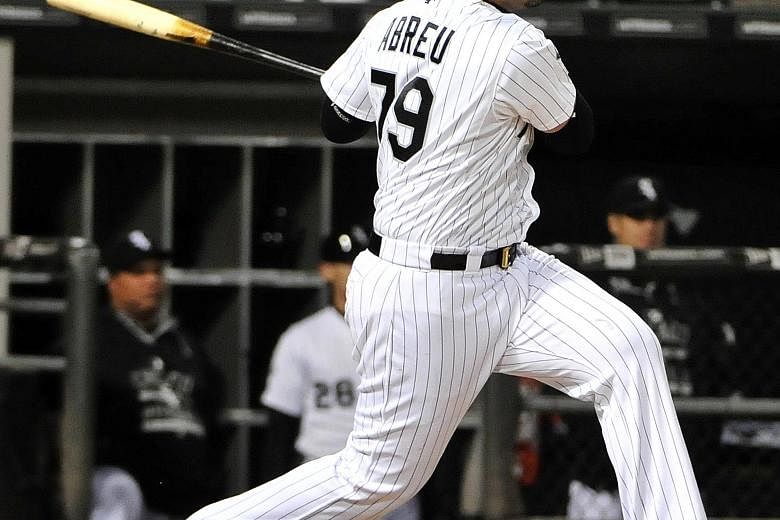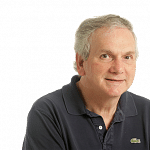Players as pawns in political games is not always a bad thing.
Major League Baseball is about to visit Cuba on a "Goodwill" tour that marks the Dec 17 meeting last year between Barack Obama and Raul Castro when the two presidents agreed to start to "normalise" the relationship between the countries.
Small steps make big gestures when two nations, about 140km apart, have spent over 50 years closer to war than peace. The Cold War was being described in the US media as The "Cold Thaw".
Great, but how do you normalise at a time when Cubans in their droves are still risking death in shark-infested seas or being picked off by bandits if they try to reach the United States as defectors by land?
Reports this week of 4,500 Cubans trying to reach America being stranded in Costa Rica contrasted with the story that a Major League Baseball tour to Havana and elsewhere will include three, maybe four, former Cubans in the batting line-up. The big name among those is Jose Abreu, the slugger signed on a nine-year US$68 million (S$95 million) deal by the Chicago White Sox when he defected back in 2013.
Next in line is Alexei Ramirez, who left Cuba in 2007, and has just been freed by the White Sox after eight seasons at short stop. The invitation to fly (presumably first class) for this short homecoming is also extended to Brayan Pena, who was 19 when he made it out of Cuba and is now a catcher with the St Louis Cardinals.
The fourth Cuban designated for this high-profile visit between next Tuesday and Friday is Yasiel Puig of the Los Angeles Dodgers. Puig isn't certain to make the trip because he is under MLB investigation following a Miami nightclub brawl last month.
But barring that disciplinary situation, they and the rest of the MLB tourists will hold clinics for kids and put on a charity event. This will be high fives all round, some game time, and for the native Cubans an opportunity to meet family they left behind (although apparently meetings will be at a guarded hotel venue, not in their family environments).
Since there is still a trade and financial embargo between Havana and Washington, I'm guessing that the Cubans who hit the MLB jackpot will not be able to hand over any lavish gifts or heavy wallets to their kinfolk.
But the human contact is important, the travel back is likely to deeply affect the emotions, maybe even the consciences, of the Cubans on the roster.
I must be careful not to call them all defectors. Ramirez, by all reports, does not call himself a defector. He has been in the States for eight years, and was planning a trip back home after this MLB season ends.
The rules, from the Cuban side, allow a player who has defected to return after eight years, and his timing is therefore right. Before the MLB trip was announced a few days ago, he had said in October that he was both excited and anxious about how people in Cuba would receive him.
And Abreu, 28, faces another unknown, another emotional tie. He left a son behind when he took his own hazardous route out of his homeland two years ago.
Professionally, Abreu hasn't looked back since. He was America's rookie of the year last year, and hit the ground running as soon as the Dodgers put a bat in his hand and a bank balance to... I almost wrote to die for.
There's the dilemma. US Customs and Border Protection report that the exodus of Cubans trying to make it to America almost doubled in 2015, to 30,966 and counting.
So there is a big difference, a human factor, in the Cuba-USA relationship that wasn't there in 1971 when table tennis was used as the common factor to soften things between China and the United States.
Remember that? Of course, many readers will not be old enough, and quite possibly some who are of that vintage would rather not admit to it.
Anyway, the April 1971 "ping-pong" diplomacy episode, when table tennis players from America became the first US citizens allowed into China since 1949, led to President Richard Nixon's state visit to Beijing. And to the long, slow, thaw between Communism and capitalism.
Sports, as this article began, is not necessarily badly used by politicians.
It is said that one of the negotiators behind next week's Goodwill visit was Antonio Castro. The son of Fidel, Antonio is a baseball administrator in Havana, far, far removed from his father's position in life.
Fidel Castro, the Marxist-Leninist revolutionary who ruled Cuba as Prime Minister and then as President for decades before handing over power to his brother Raul in 2008, had nine children.
Antonio, the one who helped broker the MLB Goodwill tour to his country, always took a softer route. He studied medicine and played baseball at university. And on a visit to London before the 2012 Olympic Games, he said in his role representing the World Baseball Softball Confederation: "It's a game anyone, anywhere can play, regardless of age, gender, social standing, disability, cultural or political position. It's a worldwide game already - played in more than 100 nations, and is growing in China, Africa, India, and South America."
Sport rather than politics or war? We can hope.


